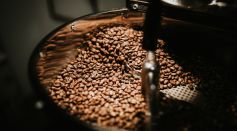ENVIRONMENT & CLIMATE
Megaconstellation Satellites Reentering Puts a Hole in Ozone Layer, Increases Atmosphere Pollution, and Uncontrolled Geoengineering
'Sea Snot' in Turkey Killing Marmara Sea: How It Endangers Both Humans, Marine Ecosystem
Maori, Possibly the First Humans to Travel to Antarctica 1,000 Years Before Russian Expedition

Oldest Male Chimpanzee in the US Dies at 63: How Long Can Chimps Live?
Giant Dinosaur Skeleton Discovered in China 70-Percent Complete; Paleontologists Say This 26-Feet Jurassic Find is 180 Million Years Old

70-Year-Old Coffee-Wilting Fungus Reanimated for Scientists to Discover Its Evolution

Microbes Thriving in Eastern Oysters Scrutinized to Study Its Impact to the Molluscs' Health

Ancient Sharks Almost Wiped Out in Strange Extinction 19 Million Years Ago
Rabid Bat Discovered in Olbrich Park: Second in Dane County, Fourth in Wisconsin to Test Positive for Rabies
Dead Zones Recurrently Forming in North Pacific During Warm Climates, Abrupt Episodes Happen Over the Last 1.2 Million Years

Oxygen in Freshwater Lakes Disappearing, Marine Life Threatened?
Growing Sinkhole Opens in Mexico Home; Scientists Explain What This Phenomenon Is
Magic Tricks Don't Work for All Birds; At Least Not With Eurasian Jays

Transparent Solar Cells Could Be Possible Soon With Novel Electrode as the Building Block
Most Popular

Starlink Satellite Explodes in Orbit; SpaceX Confirms It'll Re-Enter Earth

Will Earth's Magnetic Poles Flip Next? Magnetic Pole Reversal Explained Through Cutting‑Edge Magnetosphere Science

What Causes Monsoons? How Seasonal Winds Shifts and Climate Patterns Drive Rainfall

How Lightning Science Reveals Why Charged Storms Are Rising with Global Warming Effects




